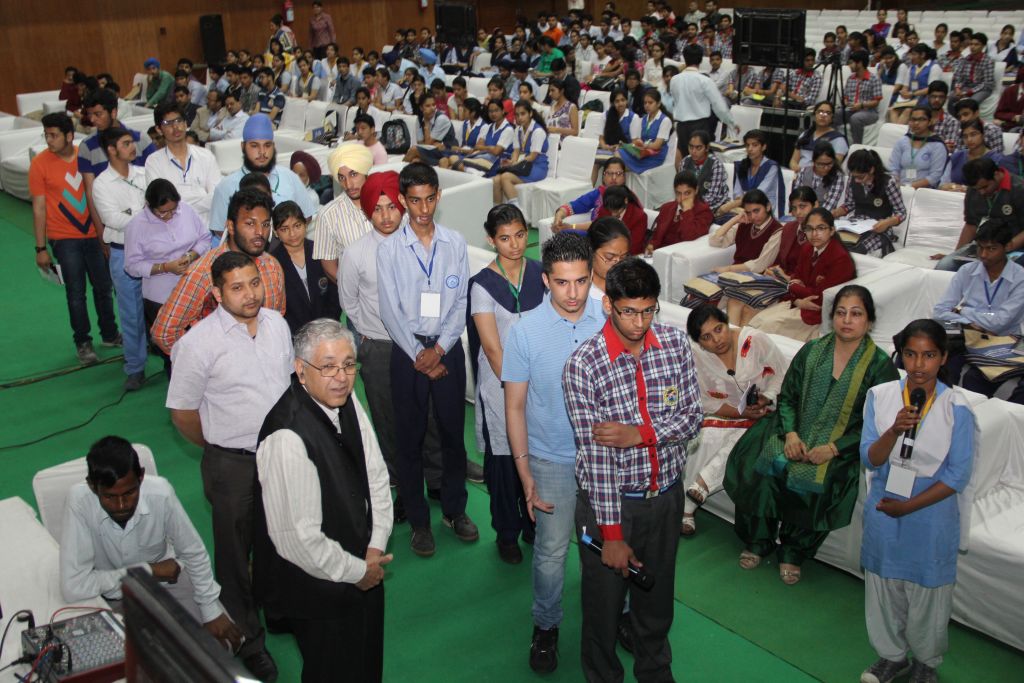Nobel Laureate and senior NASA Scientist, Prof John. C Mather interacts with the school students, 1st INSPIRE Internship Camp concludes at PU...
Nobel Laureate and senior NASA Scientist, Prof John. C Mather today interacted with the three hundred twenty five class 11th students from tri-city and neighbouring cities at Panjab University (PU), Chandigarh today. The students were participating in the 1st INSPIRE internship camp, which concluded today evening. As part of DST inspire programme, renowned astrophysicist and a senior project scientist at NASA Nobel laureate Prof John C Mather, had interacted with the students via video conferencing. On this occasion, PU Vice Chancellor, Prof Arun Kumar Grover thanked Prof Mather for motivating the students. Addressing the students, Prof John Mather unrevealed the story of creation of Universe and explained how it is continuously expanding through the BIG BANG THEORY. He also explained the principle of building the James Webb Space Telescope, which can help find life on other planets and is expected to be launched in 2018 by NASA. Prof Mather talk generated lots of questions in young minds and plethora of questions were put to James Mather. The students were curious about dark matter; dark energy; black hole; antimatter expansion of universe and solar system. The scientist also sensitized the students about the global warming at Venus planet. Prof Mather patiently explained and satisfied the various queries raised by students. PU Dean University Instructions, Prof AK Bhandari gave away the prizes to various winners in the closing ceremony. Ananya Paul from Carmel Convent School bagged first prize of Rs 10,000/- along with certificate for exhibiting innovative scientific idea at the science exhibition. Sugham Budhiraja from Shishu Niketan School got first prize in Mathematics Olympiad and received Rs 5000/- along with certificate. { Conferences/Seminar/Lecture} |
| Released on: March 27, 2015 Views: 1795 [ 30/01/2026 ] Source: DST INSPIRE INTERNSHIP PROGRAM CENTER, PU |
